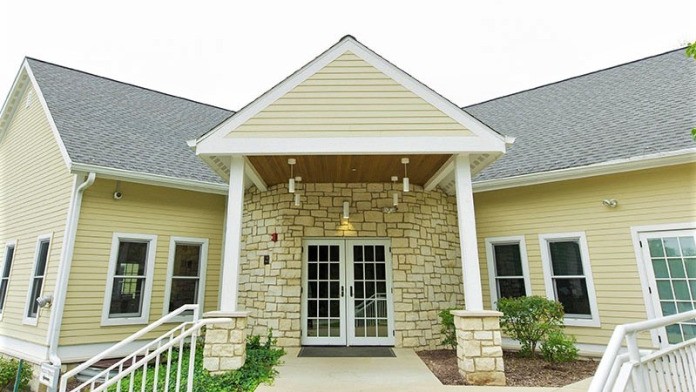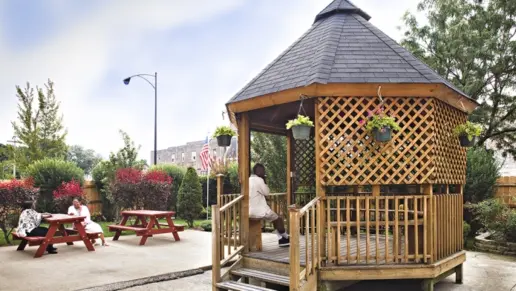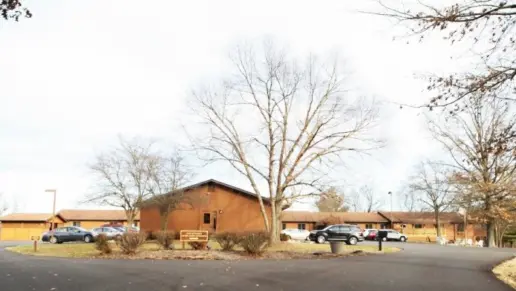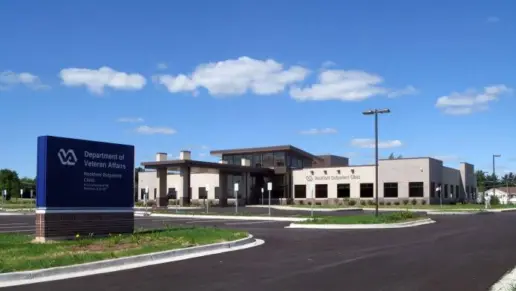About TK – PHP & IOP for Women
Timberline Knolls Residential Treatment Center treats women and adolescent girls experiencing addiction in Orland Park, Illinois. They have residential, intensive outpatient, and partial hospitalization options, including holistic and medical options. They offer help with drug and alcohol use, mental health, and eating disorders.
Life at the center consists of individual and group therapy, adopting new coping skills, and learning to unravel the psychosomatic dimension of quitting drinking or drug use. This may include an FDA prescription to address the very real bodily sensations you’re feeling, not imagining, which have a mental origin but a physical effect.
It’s great that they address the dietary and nutritional aspects of addiction. How many people are using drugs because of a lack of minerals or nutrients in their everyday eating choices? Learning new attitudes about food itself may reduce the stigma that people who have bulimia or anorexia possess. It may help others to lose weight without trying once they know what works best for their bodies.
Some people said the group leader could have been more welcoming, and others said to find an alternative if you weren’t specifically experiencing a substance use disorder or behavioral problems related to eating. Still, others said they had a great staff and a receptive ear, no matter their position at work.
Latest Reviews
Rehab Score
Gallery

Location
Accepted Insurance



Other Forms of Payment
Private insurance refers to any kind of healthcare coverage that isn't from the state or federal government. This includes individual and family plans offered by an employer or purchased from the Insurance Marketplace. Every plan will have different requirements and out of pocket costs so be sure to get the full details before you start treatment.
Self-pay involves paying for treatment out of your own pocket. You can use savings or credit, get a personal loan, or receive help from family and friends to fund your treatment. If you don't have insurance or your insurance plan doesn't cover a specific program, self-pay can help ensure you still get the care you need.
Financial aid can take many forms. Centers may have grants or scholarships available to clients who meet eligibility requirements. Programs that receive SAMHSA grants may have financial aid available for those who need treatment as well. Grants and scholarships can help you pai for treatment without having to repay.
Military members, veterans, and eligible dependents have access to specific insurance programs that help them get the care they need. TRICARE and VA insurance can help you access low cost or no cost addiction and mental health treatment. Programs that accept military insurance often have targeted treatment focused on the unique challenges military members, veterans, and their families face.
Addiction Treatments
Levels of Care
Treatments
The goal of treatment for alcoholism is abstinence. Those with poor social support, poor motivation, or psychiatric disorders tend to relapse within a few years of treatment. For these people, success is measured by longer periods of abstinence, reduced use of alcohol, better health, and improved social functioning. Recovery and Maintenance are usually based on 12 step programs and AA meetings.
Drug rehab in Illinois is designed to help people recover from addiction to a number of substances. The length of each program and its intensity tend to vary, and the plan of care is based on your individual needs.
When treating women and girls for anorexia nervosa, bulimia, or other addictions, their specialized treatment team at Timberline Knolls Residential Treatment Center never assumes they are treating an isolated disease. Frequently, drug addiction, alcoholism, anxiety disorders or an eating disorder co-occur with depression. Timberline Knolls Residential Treatment Center emphasizes early identification of co-occurring disorders. Given the high incidence of co-occurring addictions in women with major depression, treatment success depends on an accurate diagnosis by a multidisciplinary treatment team experienced in the assessment of both mood disorders and substance abuse.
A combined mental health and substance abuse rehab has the staff and resources available to handle individuals with both mental health and substance abuse issues. It can be challenging to determine where a specific symptom stems from (a mental health issue or an issue related to substance abuse), so mental health and substance abuse professionals are helpful in detangling symptoms and keeping treatment on track.
Opioid rehabs specialize in supporting those recovering from opioid addiction. They treat those suffering from addiction to illegal opioids like heroin, as well as prescription drugs like oxycodone. These centers typically combine both physical as well as mental and emotional support to help stop addiction. Physical support often includes medical detox and subsequent medical support (including medication), and mental support includes in-depth therapy to address the underlying causes of addiction.
Programs


Clinical Services
Cognitive Behavioral Therapy (CBT) is a therapy modality that focuses on the relationship between one's thoughts, feelings, and behaviors. It is used to establish and allow for healthy responses to thoughts and feelings (instead of unhealthy responses, like using drugs or alcohol). CBT has been proven effective for recovering addicts of all kinds, and is used to strengthen a patient's own self-awareness and ability to self-regulate. CBT allows individuals to monitor their own emotional state, become more adept at communicating with others, and manage stress without needing to engage in substance abuse.
Unlike therapeutic groups run by clinical professionals, peer-led support groups can help substance abusers learn to verbalize feelings and to live free from using alcohol and drugs. Peers give each other encouragement as they share their unique stories in a non-judgmental setting, which can reduce the shame associated with addictive diseases.
IIndividual and/or group psychotherapy sessions help many women suffering with alcohol and abuse to better understand the addictive disease process and alleviate their symptoms. A certified addictions counselor (CADC), psychologist, therapist, social worker, psychiatrist, or eating disorder specialist may conduct individual and group therapy for substance abuse and addiction.
Many of the women who come to Timberline Knolls have a history of trauma in addition to the presenting diagnostic problems of substance abuse, anorexia, bulimia, or mood disorders. TK staff is trained to be aware of the impact of trauma on a woman’s life and treatment. They are constantly mindful that each woman has a unique story that influences her emotions in very personal ways. They understand how ordinary interactions can lead to overwhelming emotional responses in women with histories of significant trauma.
Timberline Knolls eating disorder treatment staff also equips a woman’s family to engage in recovery as a family during and after her residential treatment. Alcoholism and drug addiction not only affect the sufferer, but also impact parents, siblings, and her spouse and children. Family therapy focused on the entire family system may help the family to recover themselves from the devastating effects of living with addiction or alcohol abuse. Family members learn how to take care of themselves and also how best to support their loved one in her recovery.
Life skills trainings involve all the skills a person must have in order to function successfully in the world. These include time management, career guidance, money management, and effective communication. Truly successful addiction recovery is based on the ability to not only live substance-free, but to thrive. Life skills teaches the practical necessities of functioning in society, which sets clients up for success in life, and therefore sobriety. Women receive weekly support from a financial counselor and care coordinator.
Nutrition therapy, aka medical nutrition therapy (MNT), is a way of treating physical, emotional, and medical conditions through diet. Specific dietary plans are designed by professional nutritionists or registered dietitians, and patients follow them in order to positively affect their physical and mental health.
Amenities
-
Residential Setting
-
Private Rooms
Accreditations

The Substance Abuse and Mental Health Services Administration (SAMHSA) is a branch of the U.S. Department of Health and Human Services. Established in 1992 by congress, SAMHSA's mission is to reduce the impact of substance abuse and mental illness on American's communities.
SAMHSA Listed: Yes

State Licenses are permits issued by government agencies that allow rehab organizations to conduct business legally within a certain geographical area. Typically, the kind of program a rehab facility offers, along with its physical location, determines which licenses are required to operate legally.
State License: Illinois
License Number: IL100813

The Joint Commission, formerly known as JCAHO, is a nonprofit organization that accredits rehab organizations and programs. Founded in 1951, the Joint Commision's mission is to improve the quality of patient care and demonstrating the quality of patient care.
Joint Commission Accreditation: Yes
Accreditation Number: 435379

The National Association of Addiction Treatment Providers (NAATP) is a professional association that represents organizations in the field of addiction services. Founded in 1978, NAATP's mission is to advance addiction services and ensure that high-quality addiction treatment is available and accessible.
NAATP Member: Yes
Member ID: 595
Contact Information
14620 South LaGrange Road
Orland Park, IL 60462









